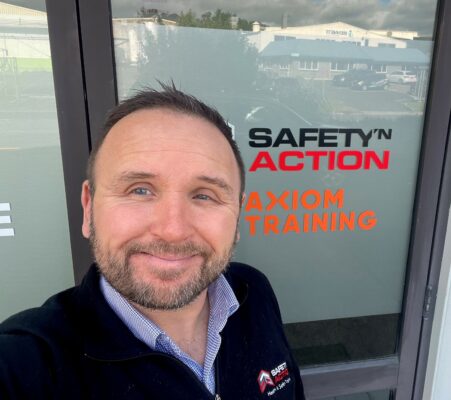How do you tell someone their performance isn’t up to scratch? What about communication around vaccines or big changes in the workplace as a result of COVID-19?
More and more business owners are having to undertake increasingly challenging conversations with employees – often around topics they are ill-equipped to discuss, such as a global pandemic!
So how can you have hard conversations with minimal stress and be a good leader to your team?
Michael Shaw, Managing Director at Dale Carnegie Bay of Plenty / Waikato, shares his top tips on the subject.
From your experience, what are some common instances where employers may have to have hard conversations?
The context of each conversation can vary enormously. It may be selling change, a company restructure or individual performance standards not being met. The challenge is how to address these issues while strengthening the organisational culture and individual relationships.
What are some mistakes commonly made by leaders in situations such as these?
Direct criticism (starting with direct criticism, not understanding), not understanding the root cause of poor performance, not getting all the facts, not understanding the other persons point of view.
A recent Dale Carnegie study on leadership blind spots identified that the most common shortcomings of leaders are a failure in these four areas:
- Sincere appreciation and praise are essential
- Employees demand leaders who can admit when they’re wrong
- Honesty and integrity in action drive engagement
- Effective leaders truly listen to and value their employees’ opinions.
What are some effective ways that leaders can manage these conversations with staff?
Firstly, if it is an employment-related issue, get good HR or employment law advice.
The best leaders need to have already built trust and respect by demonstrating integrity and applying good human relations skills.
Level 5 leaders (identified by Jim Collins’ book Good to Great) are also humble putting the greater good of the team ahead of their ego. The best managers are those who make your feel bigger or more capable rather than inadequate and diminished.
If people don’t feel psychological safe (feel they belong, are accepted and respected) they are unlikely to take onboard coaching or to buy into proposed changes.
What are some key techniques that make these conversations easier?
Using Dale Carnegie’s Principles in the Golden Book (available for free on the Dale IT app), principle numbers 22-30 essentially take a leader through the coaching process.
The principles fall into the 4 Rs:
- Rapport (22)
- Relate to the Mistake (23,24,25)
- Restore Performance (26,27,28)
- Reassure or Remove (29,30)

When it comes to employee performance specifically, how should the process of having touch conversations be managed?
After the initial performance management conversation, where the employee has taken ownership for the required results, the manager can use the Gaining Cooperation principles:
- Set the Environment (10-12)
- Engage the team member (13-15)
- Evaluate the Response (16-18)
- Empower the team Member (19-21).
What if a staff member becomes highly emotional or confrontational; how can a leader handle this?
Listen with open body language, cushion (neutral language), use evidence that illustrates your position, give a suggested action or opinion at the end.
Dale Carnegie offer a wide range of free guidebooks, blogs, whitepapers and other resources, which can be found online here.
The local Dale Carnegie team are hosting a workshop in August 2021 on ‘Psychological Safety: Why it Matters for Managers in Today’s Workplace’. With our mental wellbeing and resilience being tested by the rapidly changing world, psychological safety has taken on new importance. You can find out more or book in for this event here.
Want more top tips, advice and insights? Check out our news section.
















































